In this article:
The sound of a baby cooing and gurgling can be like music to your ears. However, there are also days when your little bundle of joy exhibits prolonged episodes of cry-screaming without any apparent reason.
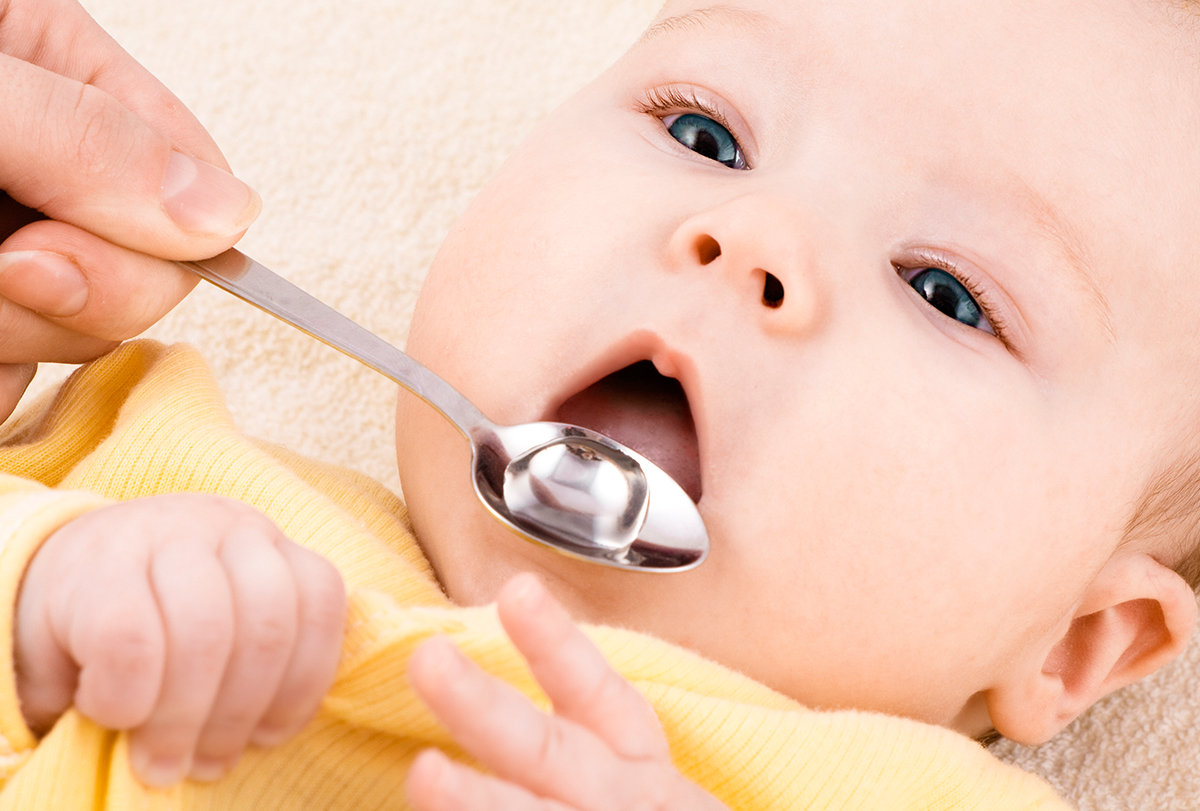
It’s perfectly normal for infants to break into a boohoo every now and then, and you can almost always settle them down with a little caressing care. Unless someone develops an app that could verbalize baby sounds into coherent speech, parents and caregivers will just have to brave through such outbursts.
Crying is usually your baby’s way to convey hunger, tiredness, sleep deprivation, or a need for a diaper change. However, if you have checked all the usual suspects off the list and still your baby continues to cry, there’s a reason to believe that it might be colic.
You can tell it’s colic if your baby cries for several hours on end such that no degree of rocking, burping, and singing can get your little one to calm down.
Colic is just as hard on the parents as it is for the babies. Watching your little one bawl endlessly without having any idea as to what may be causing it can drive any parent up the wall.
Pushed to the brink of desperation, parents have no option but to try every trick in the parental book to comfort their cranky and colicky baby.
Currently, as many as one-fifth of babies the world over deal with this relatively common malady. Given that there’s no recognized cure for colic, perhaps the only saving grace is that babies tend to grow out of this condition by the time they are 3 months old.
If all else fails, you still have recourse to an old-timey home remedy intended to soothe excessive fussiness and gas pains in babies: gripe water. (1)
Colic Diagnosis: An Essential Prerequisite for Gripe Water
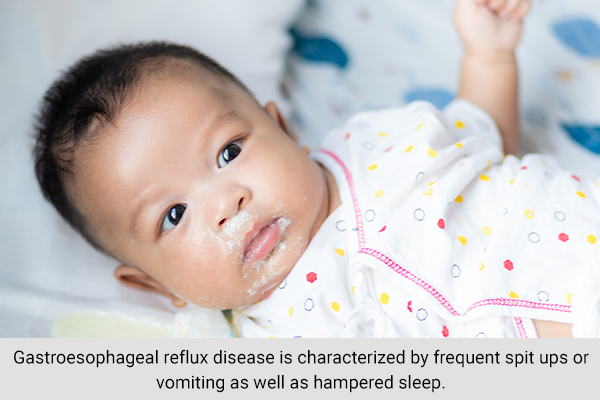
Bear in mind, though, that you must first consult with a medical professional to know for sure that it is indeed colic that is giving you and your baby all that trouble.
Oftentimes, symptoms of an unrelated condition can masquerade as colic discomfort, and it is therefore imperative that you secure a proper diagnosis before starting any treatment.
The doctor will evaluate your baby’s symptoms and condition to rule out hunger, pain, fatigue, illness, constipation, or an infection before establishing a colic diagnosis.
Gastroesophageal reflux disease (GERD) is a common condition in infancy that can be the cause of your baby’s discomfort. It is not uncommon for parents to mistake GERD for colic or vice versa, as both conditions share quite a few common symptoms.
Babies with reflux usually have more discomfort that tends to get particularly aggravated with each feeding. Consequently, they lose their appetite and refuse feeds. GERD is also characterized by frequent spit-ups or vomiting as well as hampered sleep. All of this together can take a serious toll on your baby’s development, rendering him/her undernourished and underweight.
If, however, the baby is meeting the healthy growth markers without any visible signs of digestive distress, a case of colic may be suspected.
Once a conclusive diagnosis for colic has been reached, the doctor will determine the adequacy, dosage, and method of using gripe water to manage the condition.
What Is Gripe Water?
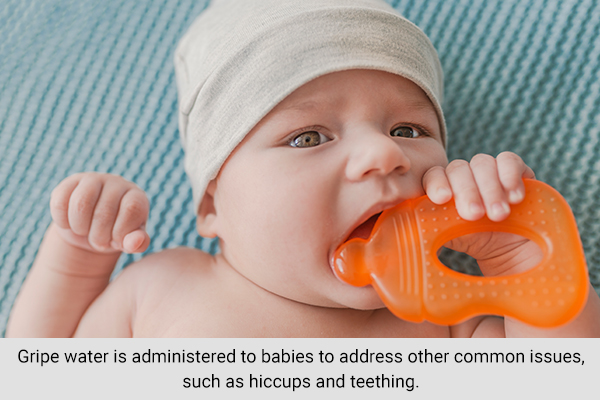
The origins of gripe water date back to 1851 Britain when this formula was used by physicians for the treatment of malaria. Back in the day, gripe water was marketed as a mixture of sugar, sodium bicarbonate, and nearly 4% alcohol. The relaxing effect of this formula was attributed to its alcoholic content, which at the time was deemed safe enough for babies.
In light of scientific research and better sense, the composition of gripe water has evolved over the years to exclude the alarming amounts of sugar and alcohol.
Nowadays, gripe water is predominantly available as an over-the-counter liquid supplement containing an all-natural mixture of herbs and water, even though some brands continue to market alcoholic and sugar-containing formulas.
There are variations among gripe water formulas from country to country and manufacturer to manufacturer, but the main active ingredients have remained the same through the years. The two main active components are sodium hydrogen carbonate, which works as an antacid, and an herb extract such as dill seed oil, which is used to reduce wind in the baby.
Aside from dill, the formula can feature other alternatives or a combination of different herbs, such as fennel, (2) ginger, chamomile, cardamom, licorice, cinnamon, clove, lemon balm, and peppermint. These ingredients come together to form a therapeutic blend that helps relieve indigestion, inflammation, and other distressing symptoms associated with gas-induced colic.
Moreover, gripe water is also administered to babies to address other common issues, such as hiccups and teething.
To make gripe water more palatable for babies, some sweeteners or glucose may also be thrown into the mix. Lastly, the formula contains potassium sorbate, which works as a preservative to extend the shelf life of the product for up to 6 months. It is essential to store gripe water at room temperature in order to keep its intrinsic value intact.
Is Gripe Water Safe for Babies?
Given that there is no standard formula for gripe water, the effectiveness and safety of this concoction can vary from brand to brand. Traditionally, gripe water contained considerable amounts of sugar and alcohol, both of which are anything but baby friendly.
While alcohol can be toxic to your infant’s sensitive insides, excessive sugar intake can also trigger a whole string of problems. In fact, gripe water was often passed around as just a fancy name to describe sugar water.
Although the jury is still out with regard to the effectiveness of this old-fashioned remedy, many experts attribute the cathartic effect of traditional gripe water to its sweet taste.
They suggest that the sugar rush may help settle your colicky baby temporarily but does nothing to address the underlying cause. Among other things, such an unhealthy reliance on sugar to soothe your baby’s discomfort can lead to early-onset dental problems.
Some formulas also contain sodium bicarbonate or baking soda, which can throw the natural pH level in your baby’s tummy totally off balance. In fact, sodium bicarbonate can end up aggravating your baby’s colic symptoms by rendering his/her digestive environment exceedingly alkaline.
Note: If you do decide to opt for this remedy, make sure to run it by your pediatrician first. Once you secure your doctor’s go-ahead, you must carefully scan the wide variety of gripe water brands available for a natural, baby-safe product.
Gripe water that is best suited for your baby’s needs must tick all the following blanks: (3)
- The mixture should contain only baby-friendly ingredients. Check the composition list on the packaging to rule out potentially harmful ingredients such as alcohol in any form or even sucrose or sugar content. Gripe water containing peppermint, gluten, dairy, parabens, and vegetable carbon are also not fit for your baby’s consumption.
- Ensure that the product isn’t past its expiration date.
- One must not take any liberties when it comes to the method of administering this remedy. Adhere to the instructions given on the pack carefully to safely and adequately use gripe water.
- Your baby can react negatively to any new remedy. Thus, it is important to observe your baby for any allergic reactions after giving a gripe water dose.
Gripe Water Vs. Gas Drops
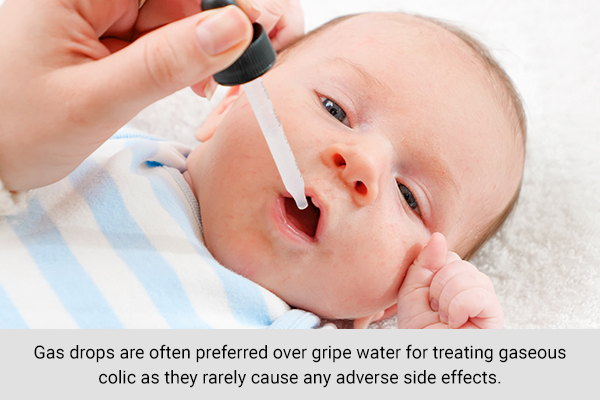
Gas drops serve as an alternative to gripe water for relieving stomach discomforts in babies, such as gas buildup, painful pressure, and bloating. Although gripe water and gas drops essentially serve the same purpose, the mechanism involved in either treatment differs from one another. (4)
Simethicone is the active ingredient found in gas drops. It works by changing the surface tension of gas bubbles in the stomach and intestines. As a result, the smaller gas bubbles combine together to form larger gas bubbles, which are easier to pass.
Gas drops are often preferred over gripe water for treating gaseous colic as they rarely cause any adverse side effects.
While the use of Mylicon and other gas drops is limited to alleviating gas tension, gripe water is helpful if your baby’s irritability is stemming from other colic symptoms or general discomfort.
There are conflicting user reviews for both on various parental forums, but there is still not a single scientific study that could either confirm or deny the efficacy of gripe water.
Note: Gas drops can negatively interact with thyroid medications. Needless to say, if your baby is currently on any such drugs, do not administer gas drops to him/her.
When Can Babies Have Gripe Water?
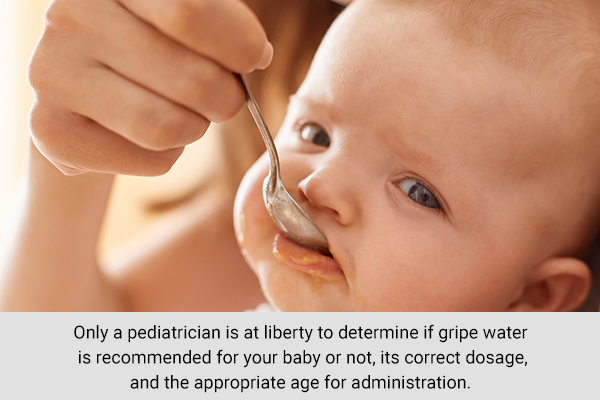
Only a pediatrician is at liberty to determine if gripe water is recommended for your baby or not, its correct dosage, and the appropriate age for administration.
According to the World Health Organization, babies younger than 6 months should only be given mother’s milk or formula as administering anything else may increase the risk of introducing bacteria, causing allergies and irritating the baby’s intestines.
At the same time, there are certain brands that claim that their gripe water is safe for infants as young as two weeks. Given that the baby’s digestive tract is still underdeveloped and ultra-sensitive during the first few months let alone weeks, such claims seem a bit far-fetched.
It’s always advisable to refrain from jumping the gun and regretting later. Wait at least until your baby is a month old before even considering such remedies, discuss their adequacy with your doctor, and let him/her take the final call.
When Is the Best Time to Give Gripe Water?
Before feeds
Colic pain usually comes and goes but tends to worsen post feedings due to gas buildup. It is therefore not uncommon for parents to administer a dose of gripe water to their baby soon after feeding to stave off potential tummy aches.
Although there is no conclusive scientific evidence to verify the efficacy of gripe water for any of its intended purposes, it is suggested that this herbal concoction facilitates improved digestion of milk enzymes in baby food.
Post feeds
Conversely, there are times when the baby grapples with colic or tummy ache even before taking in milk and, in fact, refuses to feed because of it. This discomfort may be due to pre-existing gas trapped in the baby’s system.
In situations like this, you can move away from the standard procedure and administer the prescribed amount of gripe water to your baby before nursing or feeding to ease the air out of the child’s tummy.
It is essential to maintain a gap of 15 to 20 minutes between the gripe water dose and giving the baby milk. Once the remedy kicks in, the excess gas will be relieved and your baby will feel comfortable enough to feed.
Is Gripe Water FDA Approved?
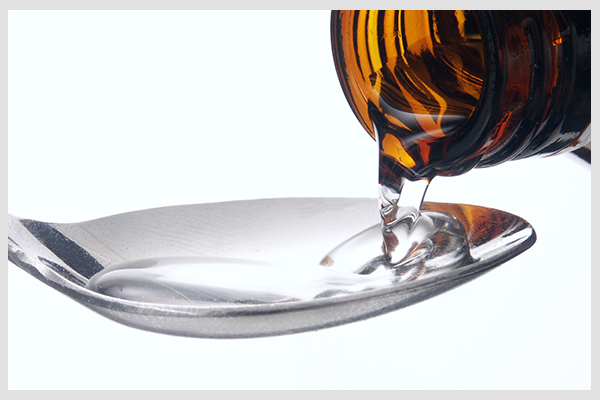
Unlike regular FDA-approved medications that fall under the drug category, gripe water is characterized as a “dietary supplement.”
Supplements such as multivitamins are sold in the United States without prior FDA approval. Much the same way, gripe water also falls beyond the FDA’s purview.
Supplements are by and large intended to provide symptomatic relief from various maladies, whereas medicinal drugs are indispensable to the treatment and prevention of the very same diseases. It is for this reason that supplements are not subjected to the standard safety and efficacy testing requirements imposed on conventional drugs.
Nevertheless, the FDA has certain adulteration and misbranding regulations in place to ensure that only supplements that are safe for consumption reach the market. It does so by stipulating what ingredients should or should not go into the making of a dietary supplement such as gripe water.
Thereafter, it’s the responsibility of supplement manufacturers to ensure that their product meets all the necessary requirements. If any manufacturer is found in violation of these regulatory guidelines, the FDA is authorized to initiate firm disciplinary actions against the said party.
Alternatives to Gripe Water
If you are still hesitating to hop on board the gripe water bandwagon, stress not. There are several other natural alternatives that you can try to relieve your child’s symptoms and calm those cries. It is essential that you consult with your pediatrician before making any major change to your baby’s diet and routine.
- Ask your pediatrician to recommend appropriate gas drops, which might just do the trick for relieving your baby’s colic symptoms. However, these antifoaming agents only work against gas-induced colic symptoms by allowing air bubbles trapped in the baby’s digestive tract to combine into large bubbles, which are easier to pass.
- Unless they are being formula-fed, all infants derive all their nourishment from the mother’s milk. Thus, it is essential for nursing mothers to watch what they eat and cut back on foods and drinks that are suspected to trigger digestive problems and discomfort in their newborn. You can follow an exclusion diet by omitting common gas culprits such as soy, caffeine, and dairy from your diet one at a time to see if there’s any improvement.
- If you are feeding formula, shaking your baby’s bottle can generate air bubbles that make their way into his/her tummy along with the mixture. You must wait a minute or two after mixing to make sure the formula has settled before feeding. Switching to a ready-to-feed formula can also be beneficial.
- If your baby appears to be extremely prone to gas problems, consider switching to a formula that doesn’t contain cow’s milk. You can easily get anti-gas formulas that are specially developed for sensitive tummies.
- If you use a bottle to feed your baby, there is a greater chance that your baby will gulp in extra air along with the formula or breastmilk. To avoid this, try tipping the bottle, so the liquid content fills the nipple and replaces unwanted air bubbles.
- You can even check with your pediatrician about switching to specifically designed bottles to prevent trapped bubbles, such as one with a collapsible bag inside or with a more flexible or angled nipple.
- Giving your baby a soothing tummy rub can also prove helpful in easing his/her gas pain. Massage the belly in gentle circular motions to facilitate the expulsion of trapped gas bubbles from the stomach and gut, thereby relieving your infant’s irritability.
- The American Academy of Pediatrics (AAP) recommends laying your baby on his/her tummy for a few minutes to help burst some gas bubbles while strengthening those all-important neck and shoulder muscles.
- Try to hold your baby upright while feeding him/her to minimize gas retention.
- Something as simple as calmly humming or whispering in your baby’s ear can mentally transport him/her back into the security of the womb.
- Background noises such as the whooshing sound of a fan, a clothes dryer, or even a vacuum cleaner also have a calming effect on babies as these remind them of the womb.
- Another tried-and-tested way to relieve pent-up gas from your baby’s system is to move his/her legs in a bicycle-wheel motion.
- Probiotic drops can also help reduce gas pain and digestive problems in babies but must be cleared by your doctor before administering them to your little one. (5)
Side Effects of Gripe Water
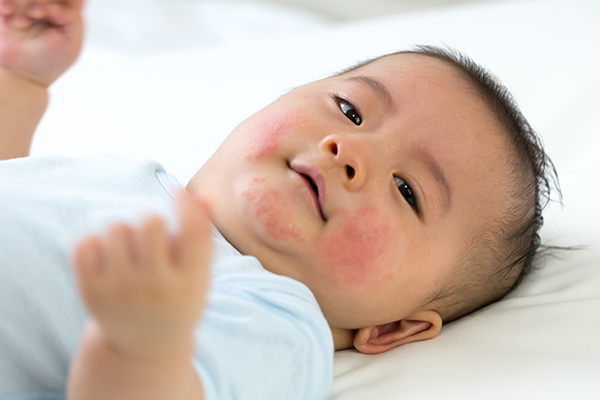
The use of gripe water spans across generations, which, some would say, could be taken as a general indicator of its safety. However, one can never be too careful when it comes to your baby’s health.
Although there are many parents that swear by gripe water as a go-to remedy for colic symptoms, basing your decision purely on anecdotal evidence can have dangerous implications for your baby. Some babies don’t respond favorably.
As a general rule of thumb, you must always confer with your pediatrician about the safety and suitability of gripe water before administering it to your little one.
Occasionally, parents report noticing the following signs of an allergic reaction in their babies after administering gripe water:
- Itchiness
- Hives
- Watery eyes
- Vomiting
- Constipation
- A rash
- Swelling of the lips or tongue
- Labored breathing
In fact, in a 2015 study published in the Journal of Clinical and Diagnostic Research, it was found that infantile colic, vomiting, and constipation were common in infants who were administered gripe water, as compared to those who did not receive gripe water. (6)
Keep an eye out for the above-mentioned signs that might indicate your infant has an allergic reaction. If you suspect an allergic reaction, discontinue its use at once and seek advice from a doctor.
Common Drawbacks of Giving Gripe Water
Sustained reliance on gripe water to address your baby’s colic discomfort can jeopardize his/her health without you even realizing it. Gripe water is marketed as a tried-and-tested fix for fussy infants, but it comes with its fair share of drawbacks.
For starters, it goes against the pediatric rule that infants below the age of 6 months should only be fed breast milk or formula, as their underdeveloped digestive and immune system may not be able to process or handle any other dietary intake.
Moreover, feeding your baby with gripe water throughout the day or night would leave no space in his/her tiny belly for the standard source of nutrition, namely, breastmilk or formula.
Gripe water, by itself, has zero nutritive value, but some people use it as a non-nutritive supplement to feeding. This is often the case in third-world countries where undernourished mothers are either incapable of producing adequate breast milk or don’t have the funds to afford formula on a regular basis.
As a result, they resort to gripe water to keep their baby full but without the necessary nutrition and ingredients that he/she needs to grow and develop in a healthy way.
Making a practice out of using gripe water to replace your child’s stipulated feeding routine will only lead to problems such as delayed growth and inadequate weight gain. Gripe water doses might interfere with your baby’s regular feeding schedule, extend the feeding interval, and hamper the mother’s own breast milk supply accordingly. (6)

Final Word
All things considered, there is no guarantee that gripe water will work for your little one. To ensure that using it doesn’t backfire, you must seek the approval of a trusted pediatrician first.
Only a doctor has the discerning expertise to know if gripe water is suitable for your child or not. Accordingly, he/she will prescribe the dosage for gripe water depending on your child’s age and symptoms. The doctor will also educate you about probable side effects and what red flags to look out for.
Be sure to follow what your doctor has directed down to the very last instruction. The minute you notice any foreboding sign of an allergic reaction, cease its use completely and take your baby to the doctor for a more thorough examination.
- Was this article helpful?
- YES, THANKS!NOT REALLY


